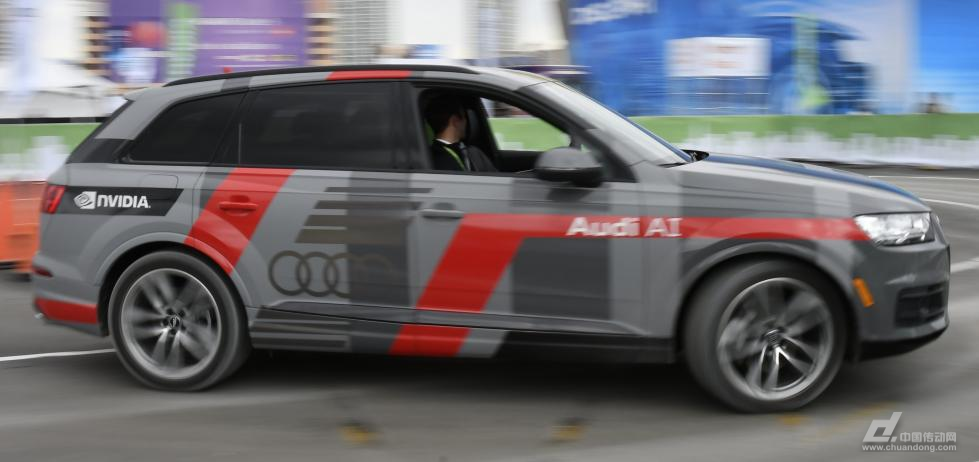According to the Wall Street Journal, although driverless cars are exciting, their commercial success has not yet been clear. Companies in this area are trying to accelerate commercialization. A year ago, Glen DeVos, CTO of automotive technology company Aptiv, used leadless customers with unmanned SUVs during CES (International Consumer Electronics Show) to demonstrate the company’s progress in handling complex traffic conditions. This year, DeVos wanted to show how the technology could actually be used in real life. At this week's show, Aptiv, formerly known as Delphi Automotive, will collaborate with taxi service startup Lyft to use the driverless car to provide free transfers between the convention center and most large hotels. The goal of this move is to demonstrate how Aptiv's technology may be applied to driverless car services. "This year we will be shifting from a technology show to a real application," said Dews. The integration between Silicon Valley and the Detroit Metropolis of Autos makes the annual CES held in January become an auto industry event comparable to the North American International Auto Show held in Detroit next week. According to the organizer of the exhibition, the area of ​​the CES automotive technology exhibition area has increased by nearly 25% this year, and the number of related companies will also increase by 19% year-on-year to 172. Renault-Nissan - Mitsubishi Alliance head Carlos Ghosn and Ford new CEO Jim Hackett will make their debut at this year's CES. The attendance also included leaders of many leading automotive component manufacturers who are planning to showcase their company’s latest advances in automotive technology. However, although driverless car technology is exciting and highly sought after, its commercial success remains unclear. Regulators are still stuck on the issue of how to deal with this new technology, and companies are still dealing with the limitations of the technology. So far, the use of unmanned technology has largely been limited to the testing of a small number of research vehicles. This year, several companies plan to cross this stage and begin deploying unmanned car teams on city streets. At the same time, engineers and programmers are trying to figure out how to expand the technology, collect data, and study how the real-world users react. For example, the Waymo driverless car division of Google’s parent company, Alphabet, has launched a taxi service in Phoenix, which will allow non-employees to use its own driverless cars in the future. In recent years, CES has become a stage for companies to demonstrate viable, driverless car technologies. For CES 2018, industry executives believe that its theme will be how to turn sci-fi technology into a huge business. "It is no longer shocking to have a driverless car on the road and people are turning to thinking about how to commercialize this type of technology." Christopher Heiser, CEO of RenovoAuto, a provider of driverless software operating systems Pointed out. Last year, chipmaker Nvidia, which provides processors for autonomous cars, displayed an Audi driverless car in a parking lot. According to Danny Shapiro, senior director of the company’s automotive business, this year the company wants to avoid this display. “Most of our showrooms are executive conference rooms because every executive team at every car manufacturer is now at CES.†He said, “We’re going to do some substantive business talks now—and no longer It is to show you what our technology can do." Hackett will describe on Tuesday his vision for how Ford will deploy unmanned test vehicles. From a recent Ford executive's statement, the company plans to deploy cars this year to test various commercial applications, which may include transportation vehicles. Aptiv plans to bring 10 test vehicles to the exhibition to stay in Las Vegas and expand the number to 30 by the end of this month. This is part of a larger plan to expand the number of test vehicles to 200 in Boston, Pittsburgh, Singapore, and Silicon Valley. On Sunday, nearly two miles to the Caesars Palace Hotel, the Aptiv-modified BMW 5 Series was very smooth. There is a digital sound on the car that informs passengers when the car wants to change lanes, and the backseat screen will also plan the route - Aptiv thinks these adjustments will make it unfamiliar to ride a robot-driven car. DeWorth said that the car is still equipped with a personnel ready to take over the steering wheel when needed, but Aptiv is expected to start operating in the absence of those personnel in the first quarter of next year. "Automatic driving is really cool, but you have to start to run it." He added, "You can't just think about driving and accumulating miles. You have to think about how to commercialize it." Electric Deep Fryer With Timer Deep Fryer With Timer,Deep Fat Fryer No Oil,Multi Function Air Fryer,Commercial Electric Deep Fryer Ningbo ATAP Electric Appliance Co.,Ltd , https://www.atap-airfryer.com